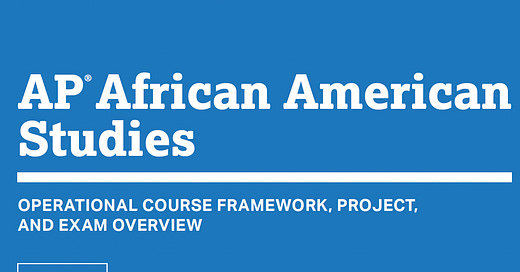Low points for higher education.
I had to wonder: What might have transpired had Gee emphasized the moral urgency of creating grand options for working- and middle-class students? What if he had taken the case for building a top university directly to West Virginians? Instead, the inescapable impression he leaves is of a college president—a man with experience, energy, and willpower—who settled for a utilitarian vision and straitened choices.
Yes please. Great states and nation states have great universities. This idea that every boat on its own bottom or economic ROI is a good approach to universities is antithetical to thriving culture, arts, and knowledge.
Unfortunately, too many universities are themselves becoming antithetical to thriving culture, arts, and knowledge. Everyone has a take on that disastrous hearing this week. Here's mine: If you make Congresswoman Stefanik look like a stateswoman, you should rethink all the choices in your life that brought you to that point.
The problem for the schools, of course, is the hypocrisy. It's not so much free speech per se but rather that these universities can't live up to their own avowed commitments around speech or conduct and consequently discredit the whole enterprise. If you can't discern use - mention distinctions on controversial words or put students in anti-bias trainings because of political views or cancel speakers for holding views that a majority of Americans do and then suddenly get mealy mouthed about anti-semitism or genocide then that's a problem. And the reason they can't live up to their commitments is because they, via the administrative operations they oversee, have fallen in love with the currently ideological fashionable idea that the world is best understood through a reductionist lens of oppressed or oppressor. It's a method that gets you in trouble as soon as it runs into an actual use case - as we saw at Tuesday's hearing. But like the politicians who were grilling them, the university presidents are also scared of "the base," just different bases. So now we're getting damage control, clean up statements, and videos that have a 'blink three times if you're being held against your will' quality. What we need instead is a more fundamental conversation about speech, but also consistent expectations for conduct, and most importantly viewpoint diversity which is wanting at too many schools.
FIRE's take on this is worth your time.
This binary oppressor / oppressed idea and seeing people as extensions of groups rather than individuals, has, by the way, also firmly taken hold in K-12 and captured the attention of too many education leaders who have never encountered a stupid fad they didn't embrace. It's a natural and predicable extension of a focus on DEI that's morphed from an essential emphasis on diversity, commitment to difference, equitable participation and inclusion into a bubble fueled and hard-edged political agenda - an agenda that one must note ample polling shows enjoys more support among elite white progressives than among the people it's ostensibly aimed at empowering who, on average, are like yeah, no thanks. Because, despite professional division industries all around us, most people recognize we're all more alike than not, life is complicated, and kind of like this place while also wanting it to be better.
So my message to education leaders is simply this: What happened Tuesday will one way or another happen to you at some point as well, especially if you keep saying one thing privately and another publicly because you're scared, or an opportunist, or just don't want to risk a good dinner party invite. And the perverse irony is that in the process you will discredit important ideas and the backlash, as we're starting to see, will create its own set of problems. Many of the people seizing this moment don't share any real commitment to difference or a genuine belief in inclusion or building a more inclusive or economically mobile America. Yet you, your funders, your allies, are doing their work for them.
Profiles in porridge.
After the disappointing PISA results came out Miguel Cardona, the American Secretary of Education, give a stirring speech where he said this is a generational challenge, kids who were already farthest from opportunity pre-pandemic are most at risk and given his deep commitment to equity he calls us all to truly focus on them, and that everyone should lay down the ideology and come together to rise to this challenge. He called on school systems and states to be more transparent about student performance and responsive to parents.
Actually, other than the results none of that happened. In fact, the secretary said in a statement we don't spend enough and absent the Biden Administration's spray and pray approach to education finance things would be much worse. He did marginally better in a full speech but it was still mostly talking points on book "banning" and other greatest hits bookended by pleas for money. He says we can't tolerate the status quo but then proposes the status quo plus extra bucks. The line from others was that we're better than Yemen or something. Just mush, all the way down.
Places everyone!
The College Board released its updated framework for its African American history course. The anti-semitism hearing seems to have swallowed up some attention that might otherwise have gone toward this culture war favorite. Our cup runneth over.
Everyone will have their quibbles. My take remains the same. Zora Neale seems underplayed David? And the reparations debate section is underpowered and a missed opportunity to showcase diverse thought. On the other hand, the course briefly mentions the role of Native Americans in slavery and by extension the Civil War, something that is too infrequently taught because it complicates the easy good guy / bad guy narratives (see above). But, something I learned this week is just how fractious a discipline African-American history is even within the field. It turns out the most used text, The Souls of Black Folk, is used in fewer than one in four college African-American history classes. And "consensus" drops off pretty quickly from there. That's a probletunity, as one of my colleagues, used to say and seems like essential context to understanding the debate about this course - that both "sides" seem to look past.
Recognizing that this is a college course it would still be useful to crosswalk it with state standards in all 50 states, would be illustrative.
It's Friday. I bring fish!
One country we beat in PISA is Iceland. As though they didn't have enough problems (not to mention this longstanding one) now they have to contend with being dumber than we are? A few weeks ago we had some Icelandic salmon fish porn with Habby. Today here is my friend Jon, who lives near Reykjavík and runs an Icelandic education company, with a nice Icelandic brown:
Here are hundreds of pictures of education types with fish. Send me yours!





